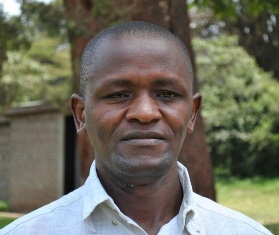
After earning my degree in Biochemistry and Chemistry from the University of Nairobi, I entered the research world to explore my passion for research and management. Over 10 years, I have worked on various donor funded projects collaborating with stakeholders in conservation and sustainable use of Forest Genetic Resources (FGR). In addition to project management, I write research concepts, technical reports and publication and design experiments. As seed research scientist, I backstop research activities at KEFRI besides consultancy in seed analyses.
Abstract
Understanding seed biology and germination ecology of plants is critical for domestication of neglected and underutilized species (NUS). However, this information is not readily available for Tylosema fassoglense [Family: Fabaceae]; despite its potential as a future crop. The main objective of this study was to evaluate the germination requirements of three lots (sourced from Busia, Migori and Siaya) of T. fassoglense by determining dormancy type, the effects of light, temperature and water potential as well as correlations amongst seed traits. Scarification significantly (p<0.05) improved water uptake by 4 to 22 times as well as germination from between 30-70% to 90-100%. The relative light germination index (RLG) ranged from 0.46 to 0.57. Germination was significantly (p<0.05) reduced at 10°C and 40°C whilst germination was 0% at 45 °C. The calculated base, optimum and ceiling temperatures (Tb, To and Tc; 50th percentile) ranges were 4.05-8.0 °C, 33.61-35.75 °C and 46.54-47.24 °C respectively while thermal time (θT(50)) suboptimal ranged from 76.19 to 89.02 degree Celsius days (°C d). Low water potential of -0.5 MPa significantly (p<0.05) reduced final germination to less than 50% while germination was 0% at both -1.0 and -1.5 MPa. The base water potential (Ψb) and hydro time (θH(20)) ranges was -0.92 to -0.97 MPa and 3.95-4.11 Megapascal days (MPad) respectively. Negatively significant (p<0.05) correlations were observed between Tb and θT; Ψb and θT while non-significant correlations were observed between germination and physical traits. Scarification improved water imbibition as well as final germination percentage and seeds of T. fassoglense are probably neutral photoblastic. The optimum temperature range for germination was 30-35 °C while seed germination was tolerant to low water potential up to -0.5 MPa. The findings of this study will be useful in future research contributing towards the domestication of T. fassoglenseas a future crop to enhance a sustainable agriculture and nutrition in Kenya and potentially worldwide.
Research Supervisors
Dr. Felister M. Nzuve, Prof. John W. Kimenju, Dr. Tiziana Ulian
